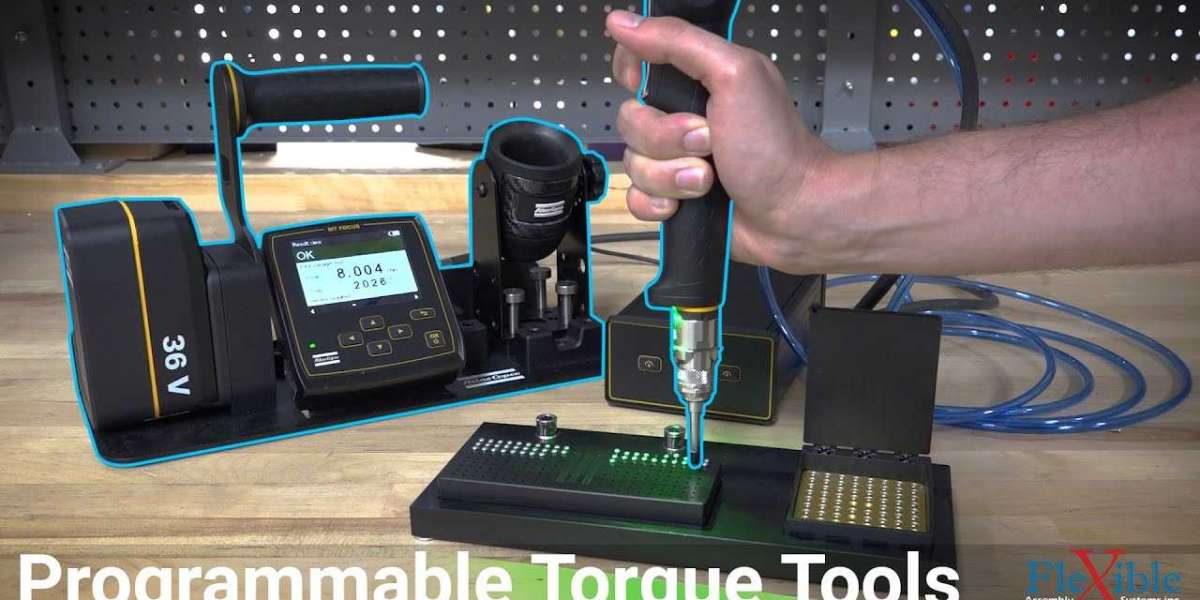Advancements in Programmable Torque Driver Technology:
The landscape of programmable torque drivers is rapidly evolving, driven by advancements in technology and a growing emphasis on precision engineering. Manufacturers are continually pushing the boundaries of innovation to meet the evolving needs of industries ranging from automotive and aerospace to electronics and medical devices.
One notable advancement is the integration of smart features into programmable torque drivers. These include enhanced connectivity options such as Bluetooth and Wi-Fi, allowing for seamless communication with manufacturing systems and quality control software. Real-time data monitoring and analysis capabilities enable proactive error detection and correction, minimizing production downtime and ensuring consistent quality.
Additionally, manufacturers are incorporating ergonomic design elements into programmable torque drivers to enhance user experience and reduce operator fatigue. Comfortable grips, lightweight construction, and intuitive interfaces contribute to increased efficiency and productivity on the assembly line.
The Role of Artificial Intelligence:
Artificial intelligence (AI) is poised to revolutionize the capabilities of programmable torque drivers, paving the way for autonomous torque control systems. Machine learning algorithms can analyze vast amounts of data to optimize torque settings based on factors such as material properties, fastener characteristics, and environmental conditions.
Furthermore, AI-driven torque drivers have the potential to self-calibrate and adapt to changing production requirements in real time. By continuously learning and improving, these intelligent tools ensure unparalleled accuracy and reliability in torque application, even in the most demanding manufacturing environments.
Integration with Industry 4.0:
As industries embrace the principles of Industry 4.0, programmable torque drivers are playing a central role in the digitization and automation of manufacturing processes. Interconnected systems, powered by the Internet of Things (IoT), enable seamless communication and collaboration between machines, equipment, and personnel.
Programmable torque drivers equipped with IoT capabilities can provide valuable insights into assembly line performance, torque application trends, and equipment maintenance needs. Predictive analytics algorithms can anticipate potential issues before they occur, allowing for preemptive maintenance and optimization of production workflows.
Moreover, integration with cloud-based platforms enables remote monitoring and management of torque drivers across multiple facilities or locations. This centralized approach enhances scalability, flexibility, and visibility, empowering manufacturers to make informed decisions and drive continuous improvement initiatives.
Applications Across Industries:
The impact of innovations in programmable torque driver technology extends across a wide range of industries and applications. In the automotive sector, for example, precise torque control is essential for ensuring the integrity of critical components such as engine assemblies and chassis fasteners.
In aerospace and defense, where safety and reliability are paramount, programmable torque drivers play a vital role in the assembly of aircraft structures, propulsion systems, and avionics equipment. The ability to accurately tighten fasteners to exact specifications is crucial for preventing component failure and ensuring mission success.
In the electronics industry, where miniaturization and complexity are on the rise, programmable torque drivers enable precise assembly of delicate components such as circuit boards and microelectronic devices. Tight tolerances and consistent torque application are essential for maintaining product integrity and functionality.
Final Thoughts:
The future of precision in manufacturing is closely intertwined with the evolution of programmable torque driver technology. From smart features and artificial intelligence to integration with Industry 4.0 principles, innovations in this field are driving efficiency, quality, and competitiveness across industries.
As manufacturers continue to push the boundaries of innovation, programmable torque drivers will play an increasingly pivotal role in meeting the demands of a rapidly changing market landscape. By embracing these advancements, companies can unlock new levels of precision, productivity, and performance in their assembly processes, paving the way for a more efficient and sustainable future.







